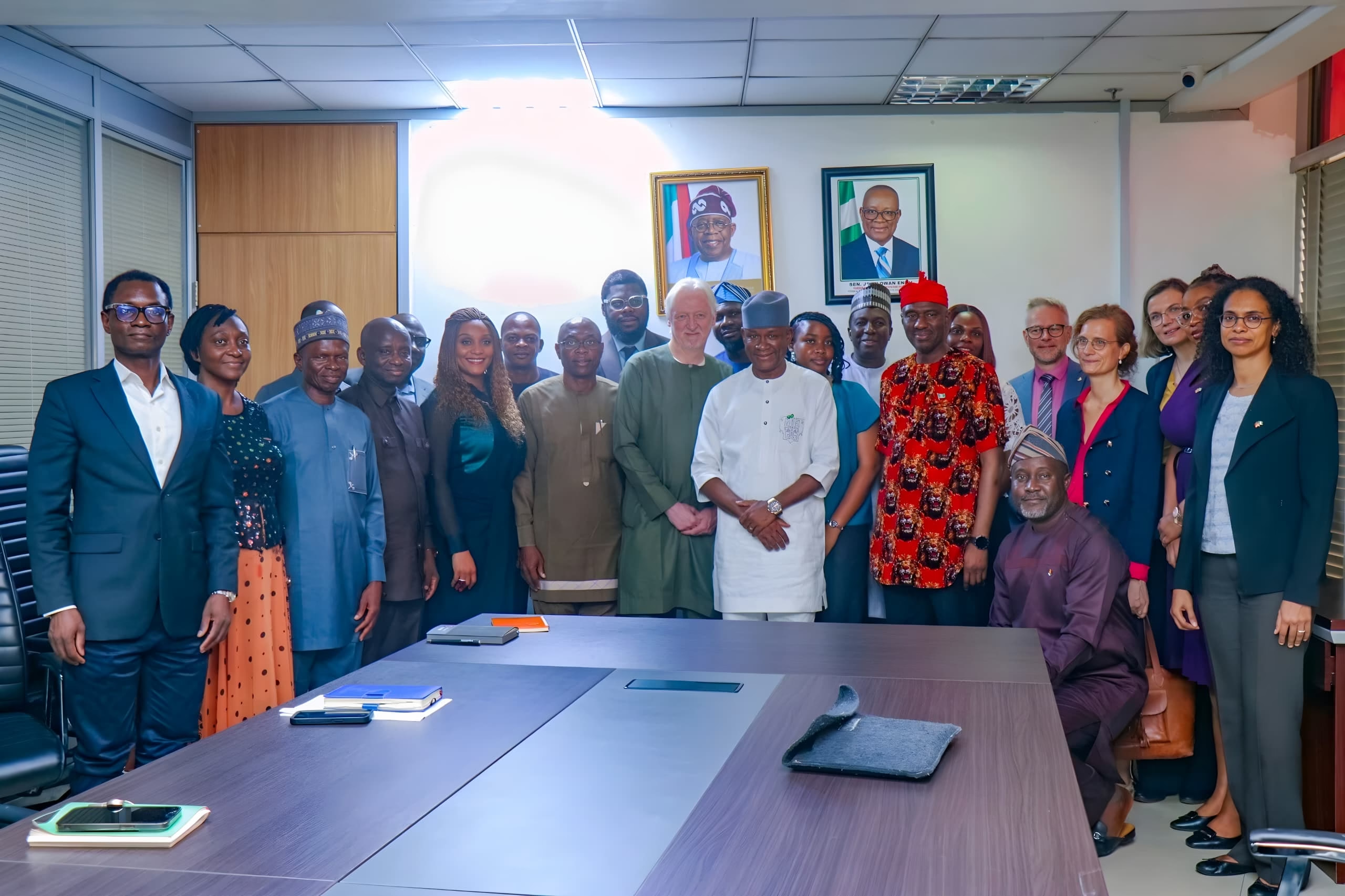The minister of state in the federal ministry of industry, trade and investment, Senator John Enoh has called for what he described as “strategic partnerships and innovative programs” in achieving Nigeria’s push for an industrial revolution.
Senator Enoh made the call when he hosted representatives from Germany’s Technical Cooperation, GIZ Nigeria, and ECOWAS, led by the Deputy Ambassador of Germany and Head of GIZ, Amb. Johannes Lehne, at the FMITI in Abuja.
The minister told the audience that key priorities for the Bola Ahmed Tinubu’s administration include promoting Made-in-Nigeria products, supporting MSMEs growth, and addressing thematic areas such as energy, infrastructure, and skills development. While reaffirming the administration’s eight-point agenda, he stressed the government’s focus on economic diversification, as he urged stakeholders and international organisations to collaborate with the government towards realising the President’s vision of a globally competitive Nigeria.
While reaffirming the administration’s eight-point agenda, he stressed the government’s focus on economic diversification, as he urged stakeholders and international organisations to collaborate with the government towards realising the President’s vision of a globally competitive Nigeria.
This is as he commended GIZ for its impactful contributions to Nigeria’s industrial sector, pointing out the organisation’s dedication to fostering industrial growth.
He expressed optimism of further collaboration to achieve Nigeria’s economic aspirations, assuring the delegation of the ministry’s zeal and commitment to implement the outlined plans.
The government, he maintained, is keen on intentional and structured interventions to achieve the shared goals of industrial growth and economic resilience, as well as the shared responsibility in advancing the country’s industrial revolution.
On his part, GIZ Country Director, Dr. Martin Schwind, gave an overview of GIZ’s blueprint for sustainable economic development, stressing on three thematic frameworks.
The first which is the Economic Development and Migration Cluster (SEDEC), according to Dr Schwind incorporates the 4TC module, two global programs, and one global initiative with a Nigerian component, co-financed by the EU and Swiss Development Cooperation (SDC).
Additionally, the Transformation of Agriculture and Food Systems (TAFS) initiative he stated seeks to establish sustainable agri-food systems, enhance regional trade competitiveness, and promote agricultural value chains across Nigeria and the ECOWAS region.
Finally, The Just Transition and Inclusive Cluster (JTI), which the team noted is active in seven Nigerian states and the Federal Capital Territory, has its focus on renewable energy, energy efficiency, climate change, and social cohesion. With nine global components tailored to Nigeria, the JTI initiative aims to address pressing environmental and social challenges.
Reflecting on past achievements, he explained that GIZ’s interventions were lauded for their role in implementing and monitoring the Nigeria Industrial Revolution Plan (NIRP), finalising the Nigeria Industrial Policy (NIP) 2020, and reviewing sectoral policies in areas such as tomatoes, leather, and textiles. Ongoing efforts by GIZ included the review of the Nigeria Industrial Policy, industrial cluster development, and enhancing MSMEs competitiveness.
His speech further included a comprehensive overview of Germany’s proof of concept for industrial advancement, emphasising digitisation as a catalyst for innovation, capacity building, and job creation.
Other areas are vocational and skills development, youth employability in digital and creative sectors, renewable energy, MSMEs support.
Others are agricultural value chains, access to finance, and conflict management for farmers, among others.


